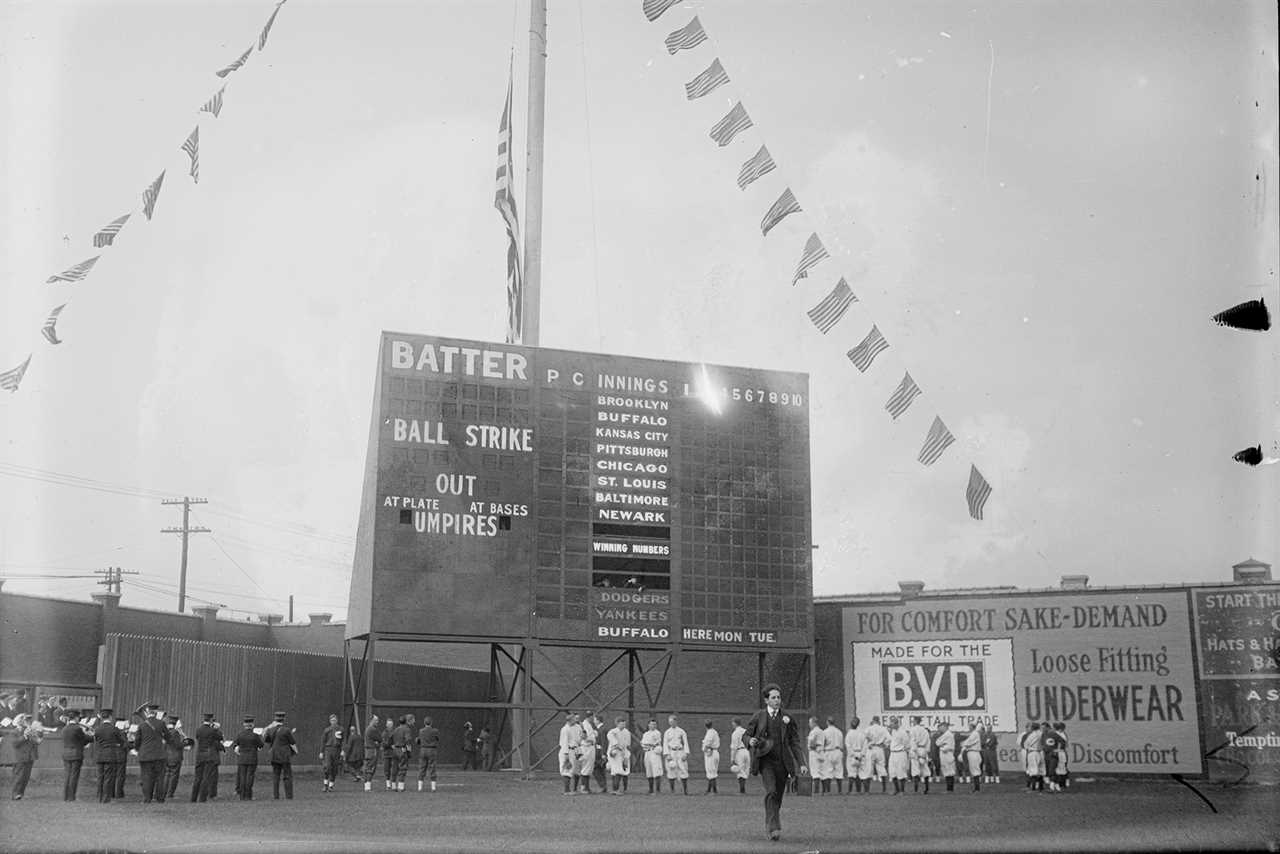
Two months into the 2022 baseball season, it’s easy to forget that it almost didn’t start at all: Not until March did baseball owners and players announce the end to the owners’ lockout.
Most fans greeted that news with relief and excitement for the start of the season. Not Sen. Bernie Sanders. His official statement on the end of the lockout ended with a promise to revoke one of Major League Baseball’s most important privileges: the league’s century-old antitrust exemption.
Sanders is a baseball fan, but not a fan of the league’s corporate ownership, and on March 14 the Vermont independent introduced the bill he promised. The Save American Baseball Act would roll back that privilege and subject baseball to the same rules as nearly every other U.S. industry. The long-shot legislation, which has zero co-sponsors, was promptly parked in committee and has yet to emerge.
To understand why it’s likely to die there, it’s useful to look at the history. Sanders is hardly the first to go after the law: Since 1922, when the Supreme Court ruled unanimously that baseball was not subject to antitrust laws, the league’s exemption has been a whipping boy for politicians. But they’ve never been able to generate enough political support to get Congress to revoke its special status.
Even the Supreme Court itself has panned the ’22 decision, Federal Baseball Club of Baltimore, Inc. v. National League of Professional Baseball Clubs, et al","link":{"target":"NEW","attributes":[],"url":"https://www.oyez.org/cases/1900-1940/259us200","_id":"00000181-57e3-d949-ad9d-77eba6d00005","_type":"33ac701a-72c1-316a-a3a5-13918cf384df"},"_id":"00000181-57e3-d949-ad9d-77eba6d00006","_type":"02ec1f82-5e56-3b8c-af6e-6fc7c8772266"}">Federal Baseball Club of Baltimore, Inc. v. National League of Professional Baseball Clubs, et al. — but has passed up opportunities to reverse it, saying it’s up to Congress to act. The exemption hasn’t been extended to any other sport, although the major sports leagues do enjoy a narrower exemption for sports broadcasting.
Since then, baseball has enjoyed a freedom to operate that no other league does — and a kind of impunity in Washington that might leave you wondering who’s in charge, Congress or the national pastime.
Sanders’ critique, of course, came from the left: He accused team owners of negotiating in bad faith during the offseason to try to break the players’ union, and promised “to prevent the greed of baseball’s oligarchs from destroying the game.”
But just last year the senators grandstanding on the issue were top right-wing Republicans: Ted Cruz of Texas, Mike Lee of Utah and Josh Hawley of Missouri, who announced their own such bill in response to MLB’s decision to move last year’s All-Star Game from Atlanta to Denver following the passage of Georgia’s new voting restrictions.
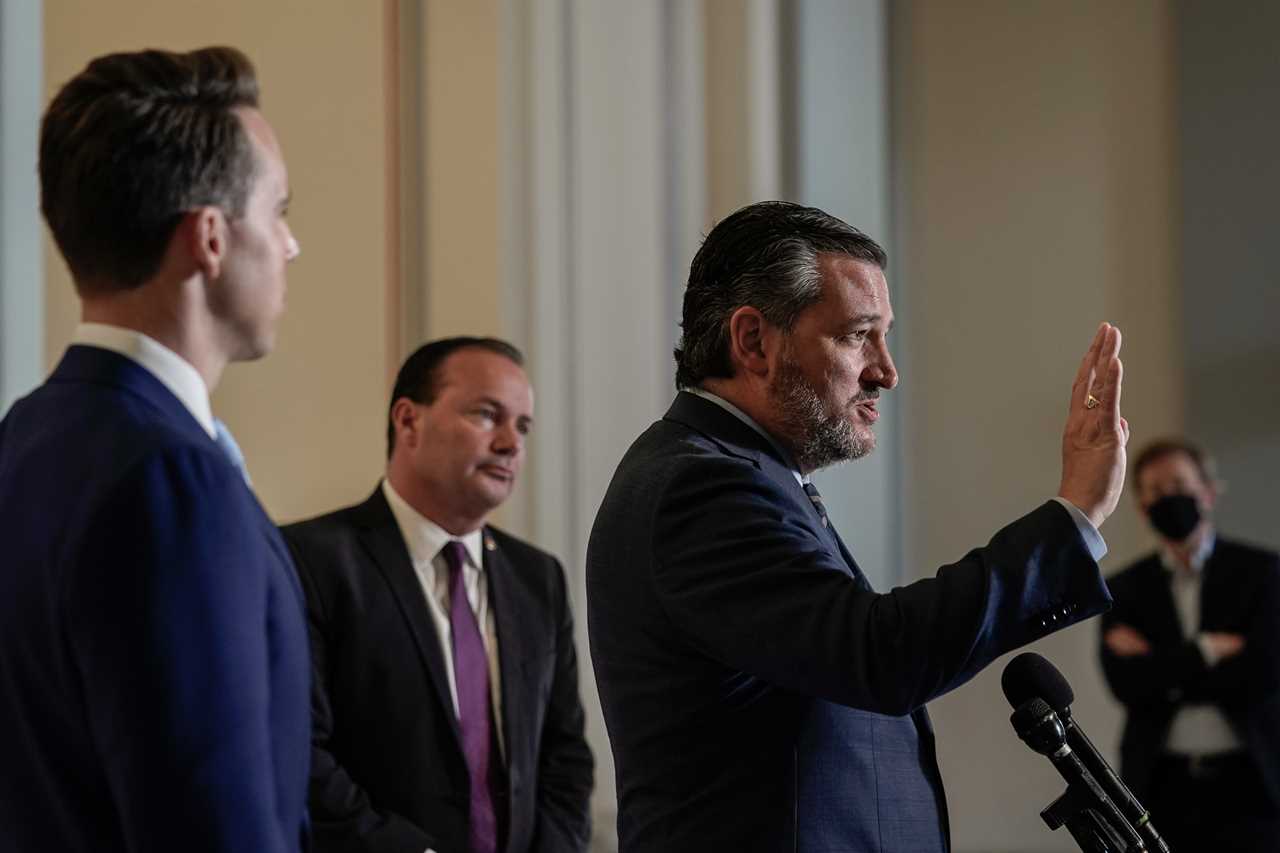
“There’s no reason Major League Baseball should enjoy special subsidies — corporate welfare that no one else gets,” Cruz said at a news conference. But the bill, like others before it, has gone nowhere.
Despite the recent noise, the high-water mark of Congress’s skepticism about the exemption came in the middle of the last century. As New York Times reported","link":{"target":"NEW","attributes":[],"url":"https://timesmachine.nytimes.com/timesmachine/1951/08/05/94084443.pdf?pdf_redirect=true&ip=0","_id":"00000181-57e3-d949-ad9d-77eba6d0000b","_type":"33ac701a-72c1-316a-a3a5-13918cf384df"},"_id":"00000181-57e3-d949-ad9d-77eba6d0000c","_type":"02ec1f82-5e56-3b8c-af6e-6fc7c8772266"}">the New York Times reported in the summer of 1951, “Capitol Hill, somewhat sated with solemn inquiries into the firing of General MacArthur, communism in Hollywood and crime all over the map, got a change of pace this week when a House Judiciary subcommittee began an investigation of organized baseball to determine whether it runs afoul of the anti-trust laws.”
At the time, baseball was worried that the Supreme Court would yank the exemption, and sought a law enshrining it. Baseball trotted out stars for the hearings, such as Ty Cobb, who was its lead witness.
No laws were passed. And the Supreme Court offered a chance to rethink the ruling, wound up keeping the status quo, affirming baseball’s exemption in a 1953 case called Toolson v. New York Yankees. Four years later, in ruling that the NFL was not exempt from antitrust laws, Justice Tom Clark elaborated on the rationale for the ’53 opinion: “The court did this because it was concluded that more harm would be done in overruling Federal Baseball than in upholding a ruling which, at best, was of dubious validity,” and noted that Congress hadn’t made any change to baseball’s exemption.
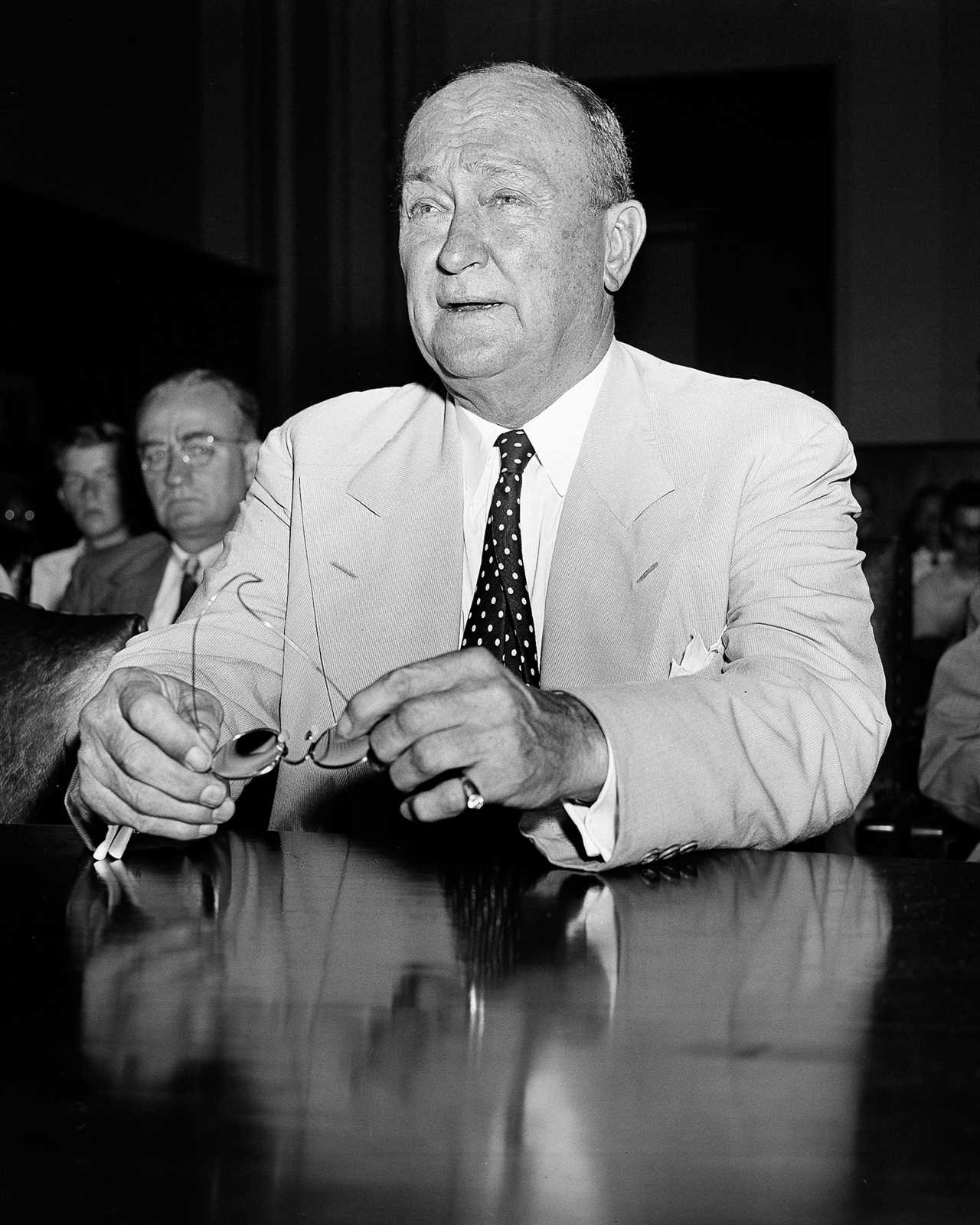
That same year, 1957, baseball did something hugely controversial: It gave the Brooklyn Dodgers and New York Giants permission to relocate to California, which they did the next season, in a seismic move that ended a golden age of New York City baseball and infuriated millions of fans. House Judiciary Committee Chairman Emanuel Celler, a Democrat from Brooklyn, N.Y. who had held the baseball hearings at the beginning of the decade, was among the heartbroken rabid Dodgers fans.
“In one breath, they say baseball is a sport, not subject to antitrust regulations,” he said, in announcing a fresh round of hearings. “In another breath, they say they have the right to move franchises in the interest of dollars, selling to the highest bidder. If that isn’t business, I’d like to know what is.” He introduced legislation to put baseball under antitrust laws.
As Capitol Hill considered his bill, the issue of relocation cut a little closer to home for every member of Congress when the Washington Senators considered leaving town. Sen. J. Glenn Beall, a Maryland Republican, implicitly used that bill as leverage in a telegraph to American League president Will Harridge, warning that it would be “unthinkable” for baseball to desert the nation’s capital.
Faced with resistance from fellow owners who were worried about Congress revoking the exemption, the senators dropped the idea, at least for the time being. In 1961, they moved to Minnesota and renamed themselves the Twins, but the American League mollified Congress by awarding an expansion team to D.C.
As with many monopolies, baseball has used its power to do whatever suits it in the moment. In the 1950s and ’60s, it permitted a steady stream of teams to move to the growing states in the west and south; in recent decades, it has enforced stability by largely quashing team movement (in contrast to the NFL, NBA and NHL, where a number of teams have changed cities). A few years ago the city of San Jose tried to lure the A’s from Oakland, but was stymied by MLB, because under the sport’s constitution, Santa Clara County, where San Jose is located, is part of the San Francisco Giants’ territory.
San Jose sued MLB for conspiring to block the move, once again challenging the sport’s antitrust exemption. But the Supreme Court in 2015 turned away the case, affirming a 3-0 decision of a U.S. Court of Appeals for the 9th Circuit panel in San Francisco, in which Chief Judge Alex Kozinski had concluded, “Like Casey, San Jose has struck out here.”
The roots of the exemption lie in a strange decision by a deeply respected American jurist. The Baltimore Terrapins (aka the Baltfeds) were a member of the upstart Federal League, which challenged the major leagues (the National and American Leagues) in the 1910s. After the 1914 season, the Federal League sued the major leagues for monopolizing baseball, and the case went to federal Judge Kenesaw Mountain Landis in the Northern District of Illinois — who would go on to become MLB’s first commissioner.
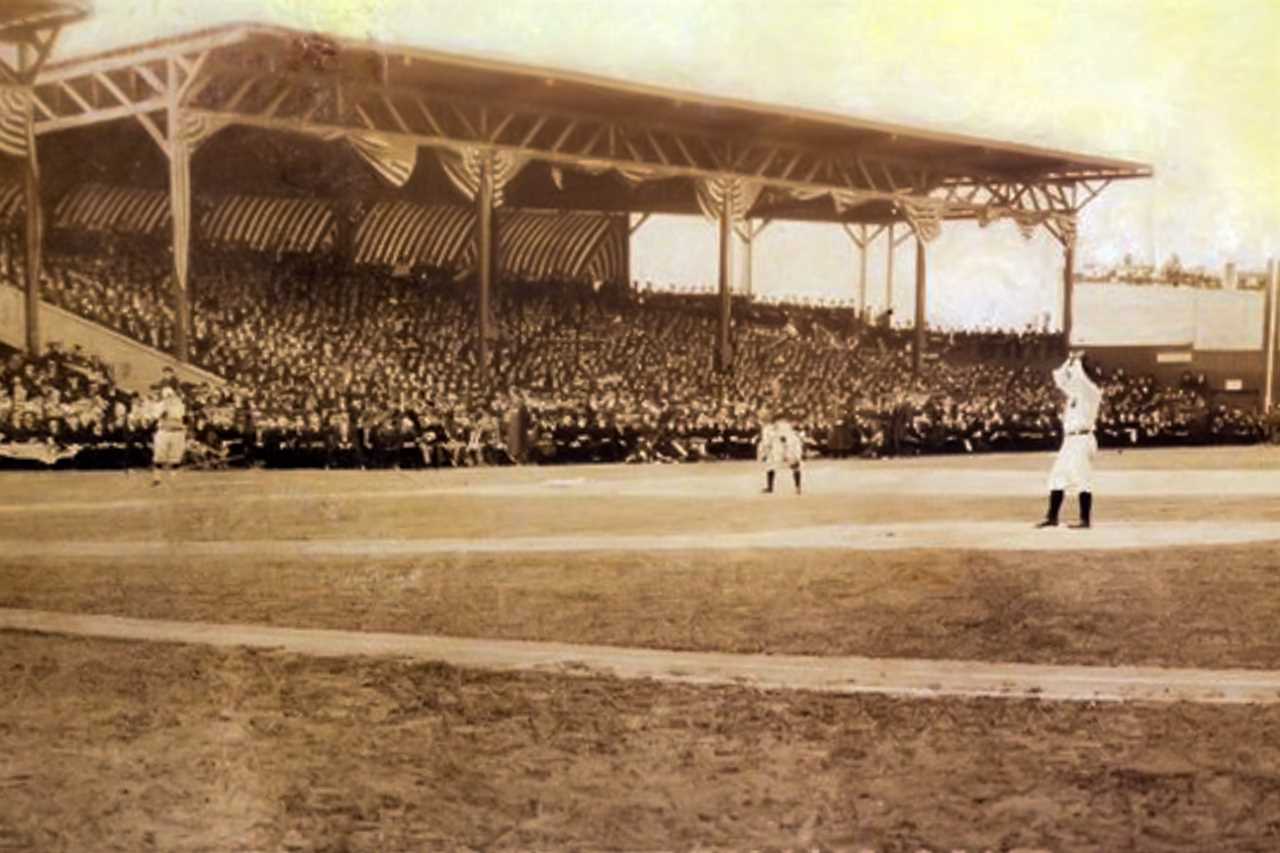
Federal antitrust laws were still relatively new — Congress had passed the first such law, the Sherman Act, in 1890 — so the Federal League probably saw an opportunity to hold baseball to this recently enacted standard. Although Landis was known as a trustbuster, he tipped his hand in the case when he said at the trial that “any blows at … baseball would be regarded by this court as a blow to a national institution.”
Before he could rule on the case, a settlement was reached in which “several Federal League owners accepted buyouts, a couple more were permitted to buy franchises in the major leagues, and three franchises” — including Baltimore — “were left to twist in the wind,” as Justice Samuel Alito wrote in a lively 2009 Journal of Supreme Court History article on the origins of baseball’s antitrust exemption.
That settlement prompted the Baltimore ballclub to sue the big leagues and several former Federal League executives, accusing them of conspiring to destroy its team by monopolizing the baseball business. The Baltimore franchise won at the trial level, but the ruling was reversed on appeal, and that ruling was affirmed unanimously by the Supreme Court on May 29, 1922 in Federal Baseball. In that opinion, Justice Oliver Wendall Holmes wrote that baseball games are matters of the state where they’re played, not interstate commerce subject to federal antitrust law.
Fifty years later, the Supreme Court had another chance to overturn the ruling, but just as it did in the 1950s, it refused to do so. In the 1972 case, Flood v. Kuhn, the court rejected an antitrust challenge to baseball’s reserve clause — which bound a player to his team — by baseball star Curt Flood.
Justice Harry Blackmun acknowledged that the 1922 ruling was an aberration, but called it “an aberration that has been with us now for half a century, one heretofore deemed fully entitled to the benefit of stare decisis, and one that has survived the Court’s expanding concept of interstate commerce. It rests on a recognition and an acceptance of baseball’s unique characteristics and needs.”
Although Oliver Wendall Holmes’s 1922 opinion has been mostly panned over the past century, there’s one justice who has defended it — Alito, not especially known lately for his respect for precedents. “Justice Holmes’s unanimous opinion for the Court represented a fairly orthodox application of then-prevalent constitutional doctrine,” wrote Alito, a huge Philadelphia Phillies fan.
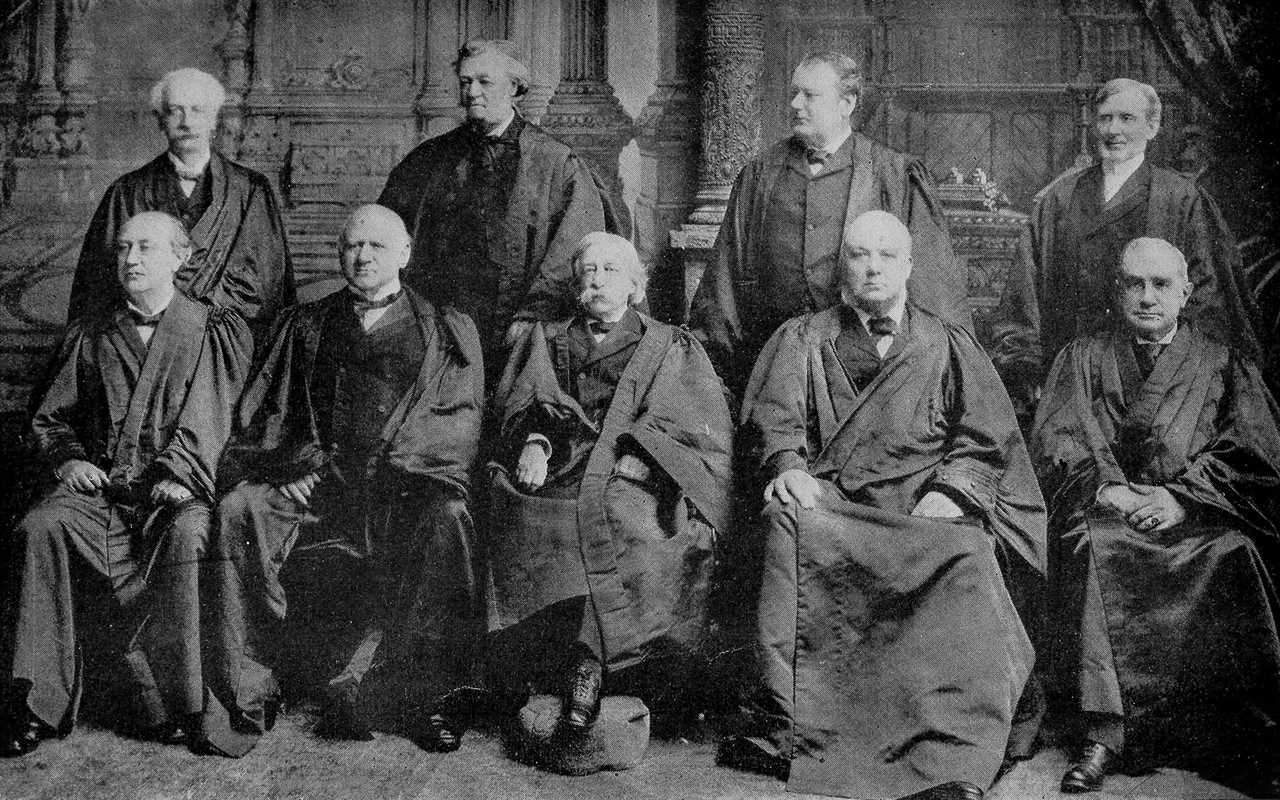
Michael McCann, a University of New Hampshire law professor and Sportico legal writer, offers another thought about why such an obviously outlying opinion might have stood the test of time: the biggest issues affected by antitrust have already been dealt with. “Why Congress hasn’t gone further is unclear, but it could be that the issue is less of a priority since it no longer applies for the context in which it attracted the most controversy — MLB player salaries and labor rights,” he said, referring to the Curt Flood Act of 1998, a significant revision to the exemption which made actions affecting major league baseball players’ employment subject to antitrust laws.
McCann thinks it’s unlikely the Court would rule the same way today if it received the case for the first time. “A finding of interstate activity would be easily shown,” he said. “That’s a key reason why the exemption has not been extended to other leagues.”
Sanders’ office didn’t make him available for an interview on why, exactly, he chose to go after baseball so publicly on an issue with so little likelihood of success. But his own history might offer a couple of clues.
As mayor of Burlington in the 1980s, Sanders brought a minor league team to the city, the Vermont Reds. Several teams subsequently moved in and out of Burlington over the years, but MLB pulled the plug on its affiliation with the last team, the Vermont Lake Monsters, as part of restructuring that cut 40 minor league affiliations before the 2021 season. That decision broke “the hearts of fans in small and mid-sized towns all over America,” Sanders said in March, when he announced his bill targeting baseball’s antitrust exemption.
Left unsaid was whether it also brought back searing memories of his favorite team leaving town 65 years ago.
Sanders was born in Brooklyn, and like millions of others in the borough in the 1940s and ’50s — including Rep. Celler — he was a big Brooklyn Dodgers fan. When they left for Los Angeles, just two years after winning their first World Series title, it helped shape the worldview of the 16-year-old Sanders.
“I don’t want to tell you that was the sole reason that I’ve developed the politics that I’ve developed,” he said in an interview with the New York Times during the 2020 presidential campaign. “But as a kid, I did see in that case about the greed of one particular company. And that impacted me.”
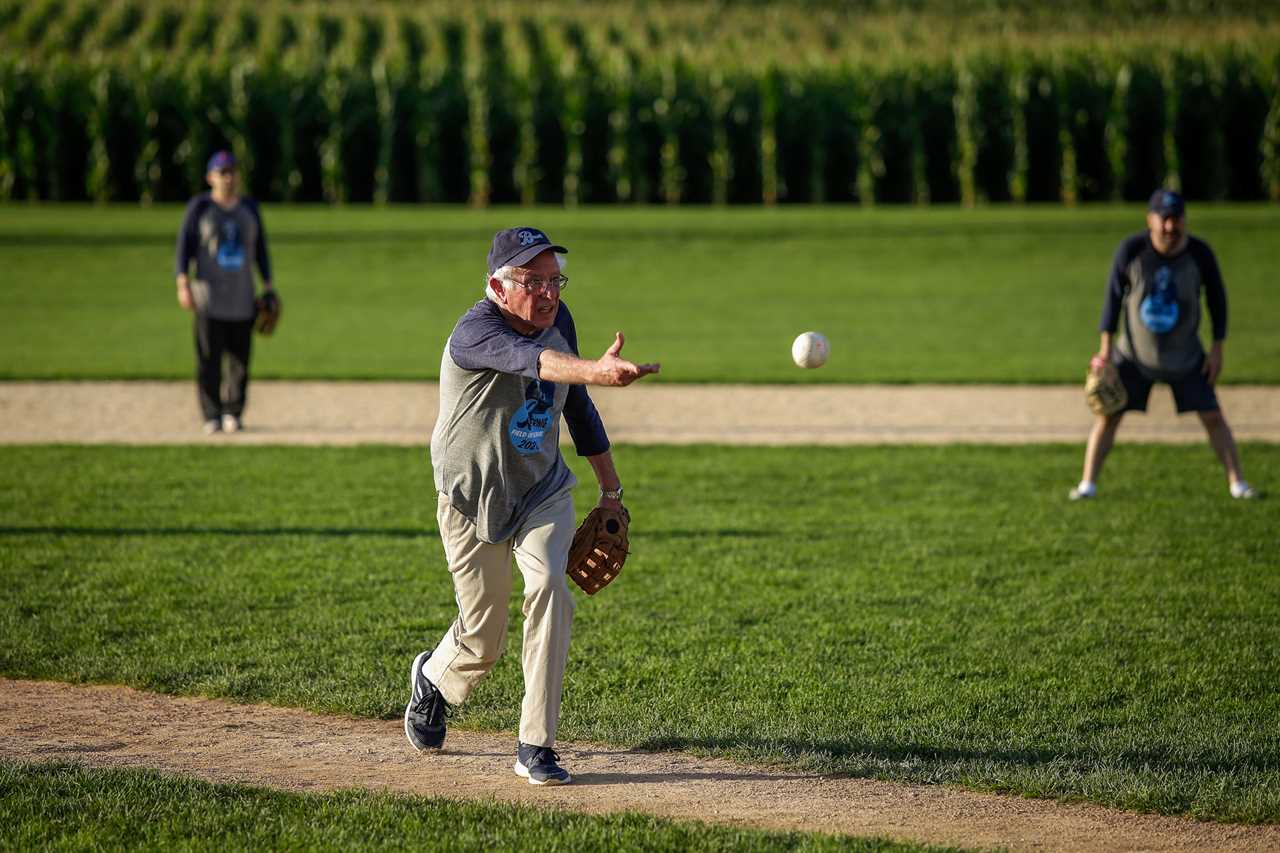
During a March segment on Sanders’ baseball bill on HBO’s “Real Sports with Bryant Gumbel,” the TV host asked Sanders if some of his animus toward baseball owners stemmed from the Dodgers leaving Brooklyn.
“Well, I wouldn’t quite say that,” Sanders replied with a laugh, “although I’ll tell you something: That was a unilateral decision made by the owners then — Walter O’Malley of the Brooklyn Dodgers, which devastated the entire community, the entire borough of Brooklyn.”
Back when Sanders was a House member, he had a cameo in a mostly forgotten 1999 movie, “My X-Girlfriend’s Wedding Reception,” playing Rabbi Manny Shevitz, a play on the kosher food company Manischewitz. As the wedding couple and guests watch uncomfortably, Sanders gives a speech that quickly descends into a diatribe about his favorite team leaving town .
“Today, we celebrate life — a very sacred part of life,” he said, sounding like Larry David impersonating Sanders. “I remember when I used to walk down my old neighborhood in Brooklyn. That was before the Dodgers went to Los Angeles — which was the worst thing, the worst thing that ever happened. And I don’t know why we let them do that.”
----------------------------------------
By: Frederic J. Frommer
Title: Bernie Sanders Can’t Fix Baseball
Sourced From: www.politico.com/news/magazine/2022/06/12/bernie-sanders-baseball-antitrust-exemption-00038630
Published Date: Sun, 12 Jun 2022 06:00:00 EST






